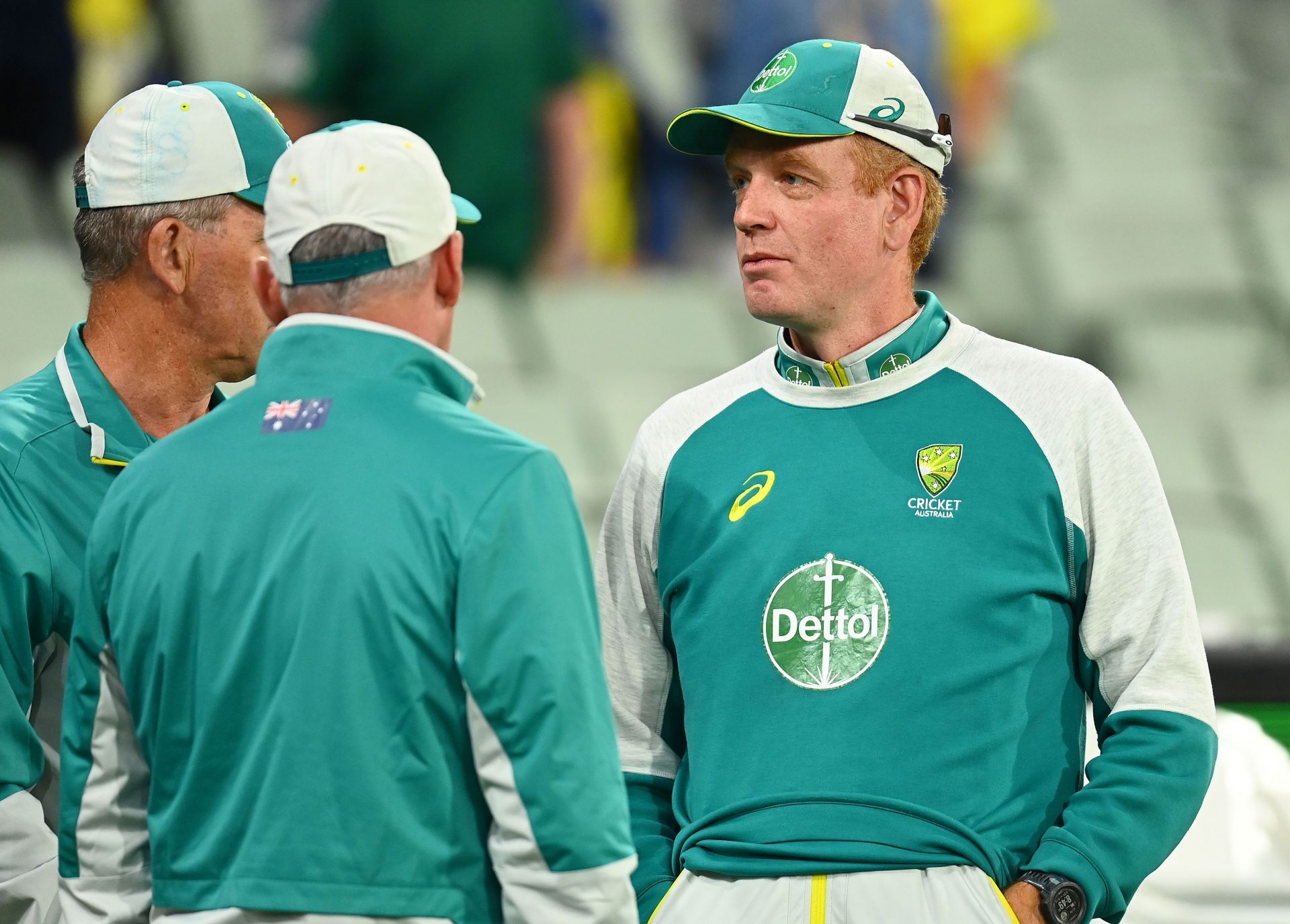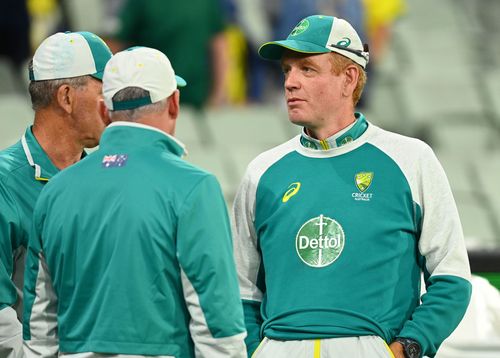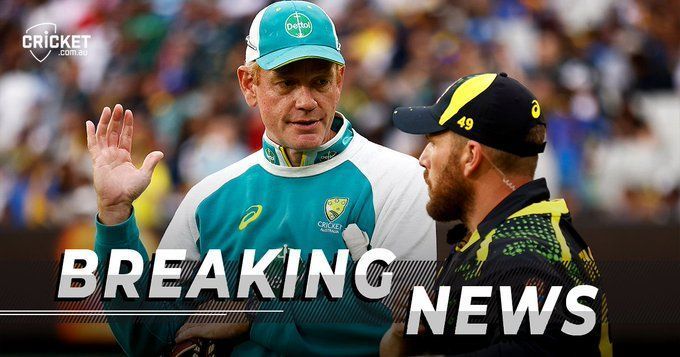
Australia, England split on split coaching

Australia coach Andrew McDonald has confirmed his preference for national sides to have an overarching head coach across all formats of the game instead of split coaching. He revealed that, as a result of his preference, he never considered the English coaching job.
McDonald's has clearly prioritized consistent direction and messaging. This is emerging as a significant cultural and strategic difference in tact and strategy between his side and their oldest rival, England.
England are still searching for their new national coach/es. Director of Cricket Rob Key has confirmed (as per The Guardian) that they will go for split coaching between white-ball and red-ball formats.
Speaking on SEN Radio (via Cricket Australia) in Melbourne, McDonald made his views clear, outlining how the Australian side will be mentored and led in the coming months.
He said:
"I think they're (England) going to go for a split coaching role. My views on that differ slightly."
"My belief is to have that one coach and share the workload within that."
Pertinent to his belief was the ability of one selection panel and one coach to work through and give direction to players, identify what their priorities are, and ensure the overall continuity of messaging across the squad.
He cited Pat Cummins' recent travails in Pakistan as one example where a crammed schedule and player priorities may clash due to split coaching.
He continued:
"For example, Pat Cummins, on the back of three Test matches in Pakistan, at the end of that he's severely fatigued and then the white-ball team gets compromised because Pat Cummins isn't playing there. But he's not ready to perform in that environment. If you had split coaches, which format takes the priority?"
McDonald was appointed as Australia's head coach three weeks ago. The Australian men's team tour of Sri Lanka next month will be his first assignment as full-time coach, following a successful Test series in Pakistan as the interim head coach.
Test cricket remains firmly in Australia's priorities after a successful tour to Pakistan, with a Sri Lanka tour in the imminent future and an India tour on the horizon (late 2022 or early 2023).
A T20 World Cup title defense also awaits them in October, alongside an ODI series against Zimbabwe in August/September.
McDonald did concede that it may be impossible for him to be at the helm for every single Australian fixture in the next 18 months. However, he made it clear how he would delegate certain matches to assistant coaches - which explains the signing of Daniel Vettori as Australia's senior assistant coach today.
England all but certain to split coaching duties
England, meanwhile, are still in the process of finding Chris Silverwood's successor as Rob Key declares his desire to split coaching duties between the two coaches - one for red-ball affairs and one for white-ball.
With a closing date of May 6 for applications, England seemingly face a race against the clock to fill the void of coaches ahead of their international season, beginning on June 2.
Simon Katich and Gary Kirsten have been touted by Key, and are widely reported as the frontrunners for the position(s). Other household names like Ricky Ponting, Mahela Jayawardene and Justin Langer were ruled out of the split coaching equation.
However, England find themselves in a unique and unprecedented position, with a packed international schedule ahead. It may have forced the board's hand in regards to the coaching set-up by way of sheer necessity due to the workload.
England have played 40 matches across all formats in the past 12 months and continue to be the international side that plays the most cricket.
Between June and the end of March 2023, England will play a combined 54 matches across 10 months. There is a possibility of that rising to 57 matches if England make the final of the T20 World Cup in October/November.
England had previously attempted the split coaching set-up in 2012, when it was shared between Andy Flower (Tests) and Ashley Giles (ODIs and T20Is). However, a substantial amount of friction and lack of cohesion across the two environments were widely reported amidst discontent over playing priorities.
The experiment culminated in a 2013-14 Ashes drubbing (5-0) and a group-stage bow-out in the 2014 T20 World Cup.
Former England player Mark Butcher warned England of a repeat situation, succinctly stating how players will struggle to balance the two environments.
Speaking on the Wisden Cricket Weekly podcast, he said:
"Inevitably, you're going to find a situation where players will enjoy one environment more than the other."
